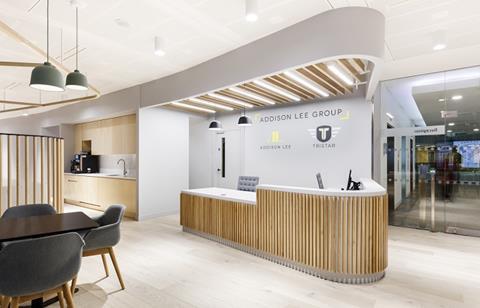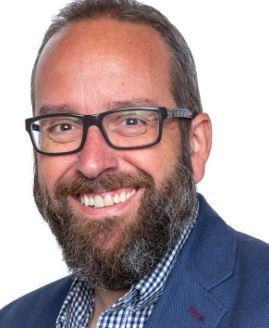
Transportation service Addison Lee is launching five organisational values in February 2019, as part of a wider strategy to reinvigorate benefits and reward for its 1,600 global employees.
The new values have been decided by the leadership team and are going to be introduced to help shape the organisation’s culture, as well as influence how it interacts with employees.
Mat Davies, HR director at Addison Lee, says: “The organisation not only wants to talk about those values, but embed them into everything that we do, [such as] how we manage people’s performances, how we manage team performance. It’s a verbal articulation of the how as well as the what, and I think that is emblematic of the way the business is seeing itself evolve over the coming 12 to 24 months.”
The values will also feed into Addison Lee’s approach to recognition. Using its learning portal, the Addison Lee Academy, employees and line managers can be recognised against each of the values via an employee performance document, with a celebratory email sent to their team and department.
“Culture [is] only actions that get repeated, and what we’re seeking to try and do is change the actions that get repeated,” Davies explains.
The new values will be communicated to employees with a 'vision and values' campaign. This will feature physical promotions, such as mugs, pens, brochures and posters, as well as changes to business practices, for example refreshing performance reviews, organisational policies, and recruitment and interview processes. Addison Lee will also be training line managers around the new values.
A benefits evolution
Introducing new organisational values is simply the tip of the iceberg when it comes to Addison Lee’s benefits evolution.
The organisation will also launch its first benefits website in January 2019, provided by Reward Gateway, as well as implement holiday carry-over and purchase for up to five days of leave. It is also looking to implement flexible benefits in the near future.
So, what is the thinking behind this new year focus on benefits and reward? “Like every other organisation, we are not immune to the ‘New Year, New Me’ piece that always happens post-Christmas,” says Davies. “Part of this is around minimising that. The changes that we are seeking to bring about are actually long-term, sustainable ones. We want to provide opportunities for people.”
The new benefits website, called Add It Up, has been designed as a one-stop-shop for employees. It will feature corporate discounts and information about the new values, as well as housing the organisation’s wellness centre, which provides ideas about yoga classes and healthy eating recipes, among other things. This is the first time Addison Lee has implemented a platform of this ilk.
Davies says: “As the business has grown, and as the competition for talent in central London has increased, we have had to think differently because expectations have shifted. They continue to shift, and we will respond accordingly.”
A year of wellbeing
The new year also brings an increased focus on wellbeing, in correspondence with the organisation’s broader employee wellbeing strategy, which Davies initially launched after his arrival at Addison Lee in February 2017.
First on the wellbeing agenda for 2019 is education in conjunction with cancer charity Macmillan, which Davies reports will likely be delivered in February 2019. With a workforce that is 60% male, Davies believes that signposting to education around prostate and testicular cancer in particular will be beneficial for the organisation’s demographic.
This will align with Addison Lee's approach to mental health, which was cemented when it signed the Time to Change pledge in January 2018. This is a commitment to support staff with their mental health at work, and to reduce stigma. Addison Lee has previously worked with mental health charity Mind, and had its senior leaders talk openly about personal mental health challenges.
“It shatters the myths that exist around mental health in the workplace, but also, when we’re open about it, it gets more people talking about it. The more people we have talking about it, the better it is for individuals and the organisation,” Davies says.
New year, new strategy
Davies and his team have been designing Addison Lee's 2019 wellness campaign since November 2018. It will include components around physical, mental and financial health.
The organisation's approach to physical health will centre around the re-launch of its cycle-to-work scheme, while financial health will be tackled via education on managing cash flow and budgeting.
In terms of mental health, Davies explains that he wishes to concentrate on interpersonal support: “Helping line managers understand that [employees] may well be dealing with ongoing battles every day that are invisible to them, and to be kind and compassionate and to be empathic as line leaders will pay dividends. It’s that kind of re-education about issue management that is central to what we want to try and do.”
Wellbeing has also been taken into consideration when it comes to the working environment itself. The UK headquarters moved into a new office building in Paddington in December 2018; this has been designed to reflect Addison Lee’s organisational culture and work ethos, with no set desks for staff, plenty of collaborative spaces, varied seating arrangements and breakout areas.
“Moving people into a building like this is the start of a journey, not the endgame,” Davies notes. “The work people do when they move to this building will be different in tone, it’ll be different in texture, in terms of how we make our people feel about working in a collaborative environment. That can only be good for the business. I think [it] is going to be good for people’s sense of pride in their work, but also in terms of their overall wellbeing.”
Communications
Communication around benefits is mainly done through an employee’s contract of employment and benefits statement, or through email cascades. Staff are also reminded about their benefits package in January during the benefits enrolment window and in November, when bonuses are paid out.
“Our approach to communication is typically event-driven, rather than proactively talking about benefits in a general sense. It’s very operational in this regard,” Davies says. He explains that the organisation will be looking to address this, and become more proactive with its communications in future.
Updating benefits
Addison Lee conducted its first global, annual employee opinion survey in June 2018. Employees ranked their benefits at six out of 10, wanting both more choice and more benefits in general.
Following on from the changes made in quarter one, the organisation plans to conduct an additional pulse survey this month, to see what improvements can be tracked.
Although the new year saw the launch of a number of initiatives, some projects are ongoing. For example, since November 2018, the organisation has been undertaking a review in order to consolidate its five defined contribution (DC) pension schemes. Davies expects this to be completed in August 2019.
Furthermore, Addison Lee’s benefits offering needs to have a global consideration, as the organisation has acquired two US businesses within the last three years. It also has an office in Hong Kong, which deals with flights around Hong Kong and China.
“Healthcare in the US is considerably different, and so we are currently reviewing our benefit provision in the US,” Davies says. “We can’t necessarily provide a uniform experience, but we can provide a consistent experience, and that’s important. So, the way in which [staff] get treated and the decency and respect that they are shown in the UK should be exactly the same as in Hong Kong and New York.”
For Davies, Addison Lee is very much on a journey, and the brainstorming stage is finally giving way to execution. “[Benefits are] an important part of the overall employee experience, and we’re very mindful that what we are seeking to do is provide choice and opportunity, dependent on where they are in their professional life and their own life-cycle. It’s an evolution, but it is definitely a step forward,” Davies concludes.
At a glance
Addison Lee is a premium ground transportation organisation that accommodates both taxi services and parcel deliveries. It has 1,600 employees globally, including 947 staff in the UK, and allows its customers to book services across 123 cities worldwide.
Employees cover 232 different job roles, including positions in finance, marketing, HR and communications. The organisation also offers numerous technology-based jobs, such as application software developers, infrastructure developers, software engineers and designers. Addison Lee also works with thousands of partner drivers.
The average age of employees at Addison Lee is 37 and the gender split is approximately 60% male to 40% female. The average length of service tends to vary depending on the job role, with those employed in car control or dispatch having typically longer tenures than staff in functional roles.
Business objectives
- To retain existing corporate and individual customers, as well as to attract and build new customers.
- To deliver the organisational budget by providing innovative services and being cost focused.
- To invest in a new fleet of vehicles for January 2019 in order to adhere to premium branding.

Career history
Mat Davies, HR director, joined Addison Lee in February 2017. With more than 15 years of industry experience, Davies has a generalist HR background; he has worked in roles centred around employee relations, organisational development and recruitment, as well as tackling benefits and reward.
Prior to Addison Lee, Davies held various HR director roles at technology consulting organisation CGI; he also acted as recruitment director at Logica before the business was acquired by CGI. Davies additionally worked as head of HR, BT public sector, and senior HR manager at telecommunications organisation BT, and as employee relations manager at Barclays.
Davies cites a number of proud career achievements. For example, during his time at Barclays, Davies renegotiated the organisation’s European Works Council agreement. During Logica's acquisition by CGI, Davies led the discussions around the integration terms and benefits, which were then delivered on budget and within nine months. Davies also values the work he has done around mental health at Addison Lee, especially as budgetary constraints require him to think creatively.
“I’m really proud of the pieces of work I’ve done where people have had a long-term benefit from them,” he says. “It’s those small but meaningful bits that give me a really good sense of drive and motivation.”
Read more...











